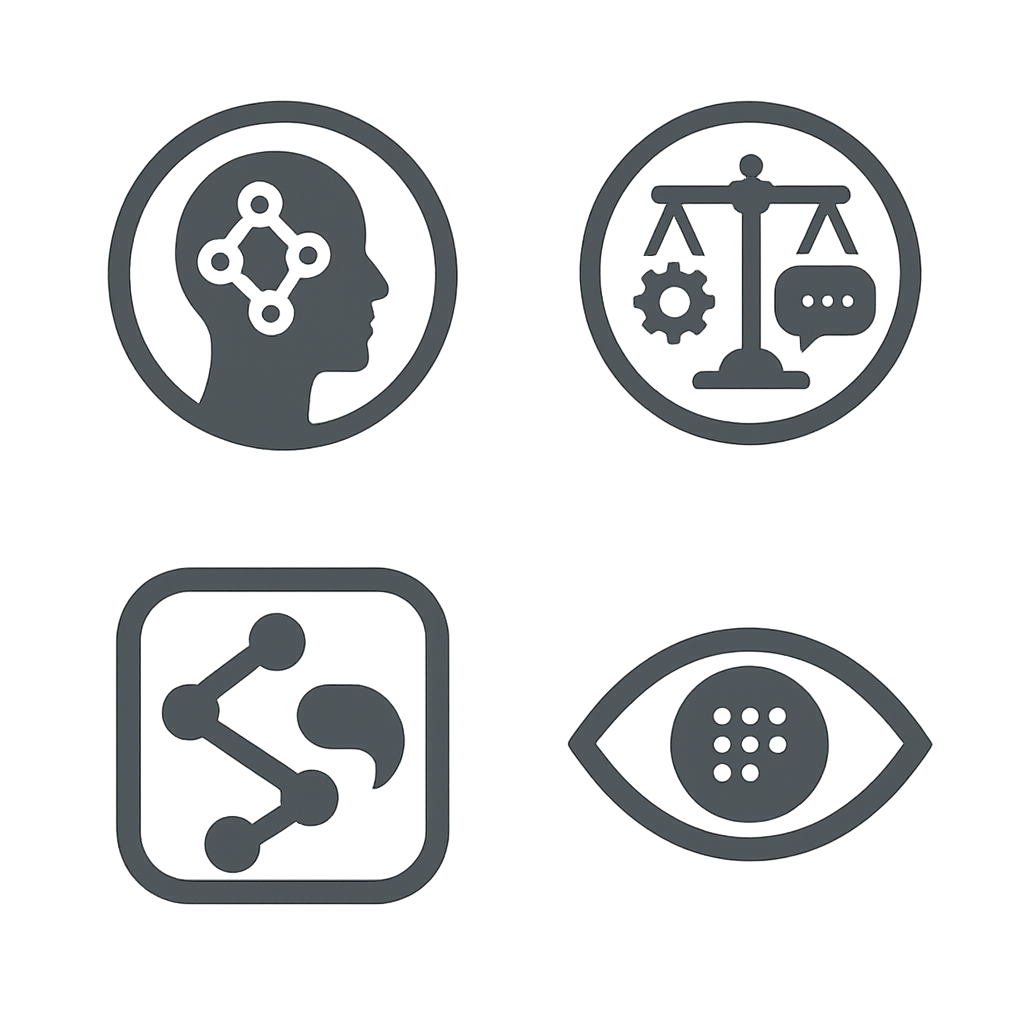Teaser
Let’s read AI with Popper as a public experiment, not a prophecy. Models should live inside institutions that welcome criticism, enable falsification, and prefer piecemeal social engineering over utopian “AI will fix everything” plans; otherwise we drift from science to superstition in a lab coat (Popper 1959; 1962; 1945/2003).
Introduction
Today’s question—“Can I let the AI do my thinking?”—invites a Popperian answer: you may propose with a model, but you must dispose with criticism. Popper’s critical rationalism treats knowledge as conjectures exposed to refutation; the open society institutionalizes that attitude through free inquiry, plural media, and correctable policy. Brought to AI, the point is simple: design our technical and civic systems so that errors are easy to find, safe to voice, and quick to repair.
Six Popperian lenses for AI
1) Demarcation by falsifiability. A claim about an AI system is scientific only if we can state what would count as a refutation (data slices, failure modes, benchmarks that might make us withdraw the claim). Explanations that can never be wrong—“the model is too complex to test”—belong to mythology, not science (Popper 1959).
2) Conjectures and refutations, not oracles and certainties. Treat model outputs as conjectures that need rival hypotheses, counter-datasets, and adversarial tests. The goal of evaluation is not to win, but to survive serious attempts to lose (Popper 1962).
3) Piecemeal social engineering. Deploy AI by reversible steps with local safeguards, not civilizational overhauls. Monitor consequences, publish what went wrong, and keep the rollback switch within reach (Popper 1945/2003; 1957).
4) Against historicism. Beware narratives that say “history (or data) guarantees this future.” Predictive dashboards tempt us to mistake trendlines for necessity; Popper’s antidote is humility and policy experiments that can prove us mistaken (Popper 1957).
5) Open society, open criticism. Legitimacy requires free criticism and protection for dissenters. Build red-team channels, public bug bounties, whistleblower protections, and appeal routes that can change both decisions and the models that made them (Popper 1945/2003).
6) Objective knowledge as error-correction. What matters is not who speaks—human or machine—but whether claims enter a community of disciplined testing. Documentation, data provenance, and reproducible evaluation are civic goods, not compliance chores (Popper 1972).
Three applications
Education. Use AI as a partner for critique drills: students generate competing solutions, then try to falsify them with counter-examples and boundary cases. Grades reward the quality of tests, not just fluent answers.
Public administration. For eligibility or risk models, publish refutability dossiers: error bars, failure cases, groups where error is highest, and the precise conditions that would trigger rollback. Appeals must be binding and visible.
Workplaces. Treat copilots as hypothesis machines: show uncertainty, cite sources, and surface alternative paths. Managers evaluate how teams probe the tool—not how fast they accept it.
Toolkit for students (and teams)
- State the stake: “Our claim is true if … and would be false if …” (write the counter-evidence).
- Build a rival: Create a naive baseline, a simple rule, or a human checklist to compete with the model.
- Slice to refute: Define 5–10 data slices where you expect failure; publish results even when they hurt.
- Design reversibility: What is the smallest scope for the first deployment, and how do we roll it back safely?
- Protect critics: Name who may halt the system and how they are shielded from retaliation.
Guiding questions
- What exactly would count as a refutation of this model’s claim in context?
- Which policy choice can we test now at small scale instead of betting the whole city/firm/school?
- Who is authorized—and protected—to publish uncomfortable results?
- Where are we telling a historicist story (“the data say we must…”) instead of running an experiment?
Design & policy takeaways
- Make error cheap. Structured A/B rollouts, strong logs, and one-click rollback for high-stakes use.
- Make criticism safe. Anonymous channels, independent audit, external red-team grants.
- Make claims refutable. Every release ships with testable predictions, failure slices, and exit criteria.
- Resist historicism. Prefer multiple scenarios, short horizons, and public evaluation to sweeping predictions.
Literature (APA, with links)
Popper, K. (1959/2002). The Logic of Scientific Discovery. Routledge. Publisher page.
Popper, K. (1962/2002). Conjectures and Refutations: The Growth of Scientific Knowledge. Routledge. Publisher page.
Popper, K. (1945/2003). The Open Society and Its Enemies (2 vols.). Routledge. Publisher page.
Popper, K. (1957/2002). The Poverty of Historicism. Routledge. Publisher page.
Popper, K. (1972/1979). Objective Knowledge: An Evolutionary Approach. Oxford University Press. Publisher page.
Prompt
“Please write a WordPress-ready post for our series ‘What would sociologist X say about AI & Society?’ focusing on **Karl Popper**. Open with an **AI co-author disclosure** stating that the scenario was created by an AI. Use a clear, sociological but accessible tone (Roddenberry/Orwell/Seneca pieces as style reference). Structure the article with **H2/H3 headings**, no numbered subheadings, and **no inline URLs in the body**—place all links only in the Literature (APA) section.
Frame: Connect today’s question ‘How do I avoid letting AI do my thinking for me?’ to **Popper’s critical rationalism**. Treat models as conjectures that must face criticism.
Content blocks to include:
- Teaser (2–3 sentences): Popper would see AI as a public experiment inside institutions that welcome criticism and **falsification**, favoring **piecemeal social engineering** over utopian plans.
- Introduction: Define demarcation, conjectures/refutations, open society. Tie to everyday uses of AI (education, work, public services).
- Six Popperian lenses: (1) Falsifiability/demarcation; (2) Conjectures & refutations (rival hypotheses, adversarial tests); (3) Piecemeal social engineering & reversibility; (4) Anti-historicism (limits of prediction); (5) Open society = protected criticism (whistleblowers/red teams); (6) Objective knowledge as error-correction (reproducibility, documentation).
- Three applications: Education (critique drills), Public administration (refutability dossiers + binding appeals), Workplaces (copilots as hypothesis machines).
- Toolkit (practical checklist for students/teams): state-the-stake; build a rival; slice to refute; design reversibility; protect critics.
- Guiding questions: 4–5 short questions that decision-makers can use before deployment.
- Design & policy takeaways: make error cheap; criticism safe; claims refutable; resist historicism.
- Literature (APA, with publisher-first links): Popper (1959/2002) *Logic of Scientific Discovery*; (1962/2002) *Conjectures and Refutations*; (1945/2003) *Open Society*; (1957/2002) *Poverty of Historicism*; (1972/1979) *Objective Knowledge*. Provide **publisher pages** as links.
- Model suggestion: Recommend **GPT-5 Thinking** for theory scaffolding and **GPT-Pro** for current case studies.
Formatting rules: H2/H3 headings; concise paragraphs; keep tone rigorous yet student-friendly; no horizontal rules; WYSIWYG-ready. End with the Literature (APA) section only.


Leave a Reply